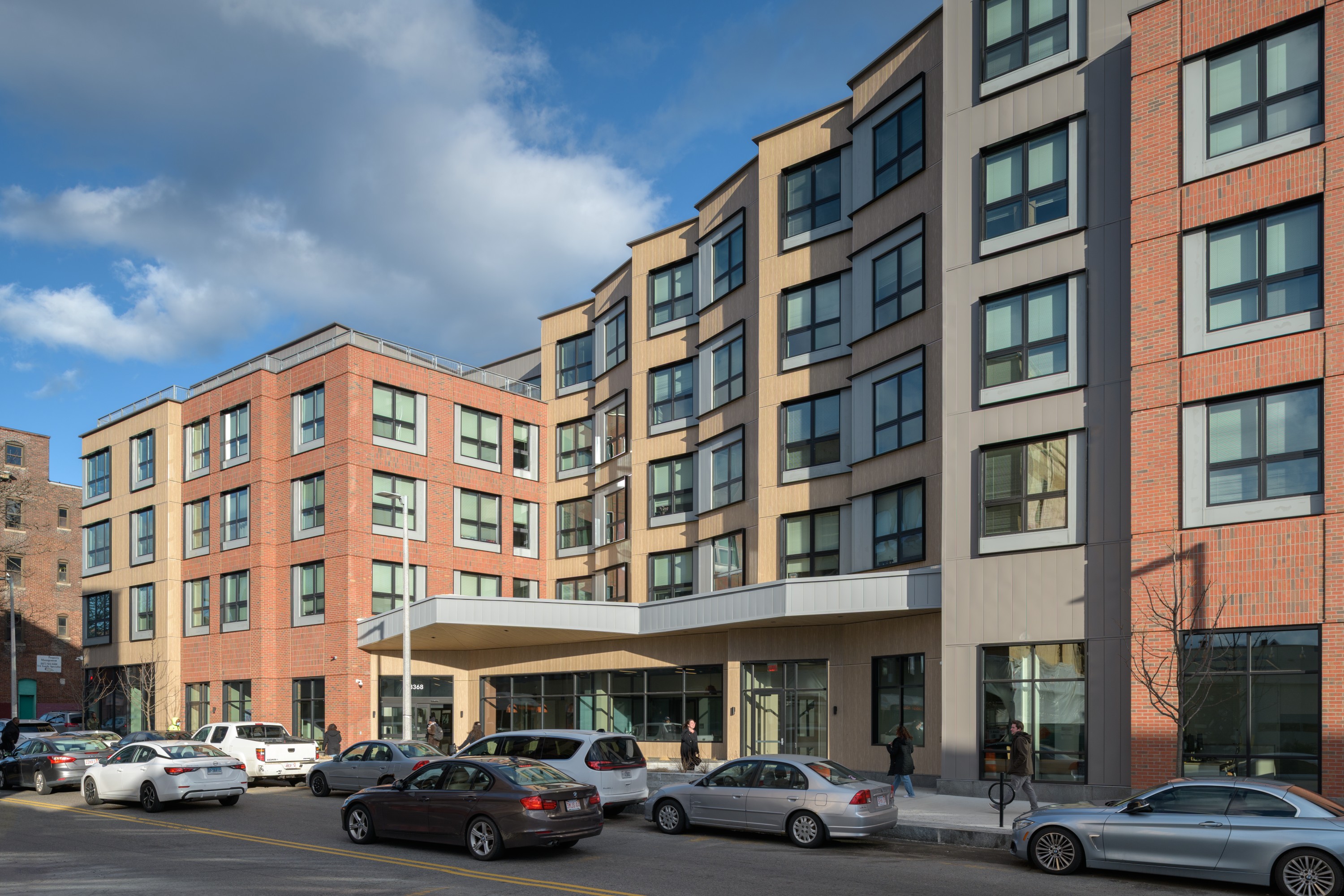
"It is our responsibility to think with big ideas and execute in small details."
Alex is a registered Architect with over 10 years of experience working on projects of all scales, ranging from airports and supertall structures to restaurants and product design. Since joining RODE in 2018, he has become a design leader on concept-driven projects, with an emphasis on design communication and graphics. He led the design on the Pine Street Inn, a project he believes will be a catalyst for profound positive change. He is also a founding member of RODE's research and design committee, RODE HIVE, as well as the firm's DEI Committee.Outside of architecture, Alex also has a passion for the culinary arts. In 2017, he took a hiatus from architecture to work as a Chef de Partie in an award winning fine dining restaurant in Boston's Seaport. Since then, he has committed to design that is thoughtful and explorative at both an experiential scale as well as an urban grain.
Relevant Projects And Collaborations.
Perspectives
RODE Hive Workshop 1: Pandemic Sketching
We became architects because we wanted to create, shape the world around us, and have an impact on how people experience their surroundings. We became RODE Architects because we share a belief in two principles: great design has the power to transform our environment, and working collaboratively is what gets us there.
Our collaborative spirit was challenged when the pandemic hit. Like most firms, we were forced to re-evaluate our old ways of doing things and find new solutions to achieve the same successful outcomes. One of the ideas to come out of this process is the RODE Hive Workshop series, a team-wide, biweekly information sharing session.
These biweekly discussions allow our team to explore a specific topic or task challenged by our current work situation and share solutions, tips, and tricks to improve our individual skill sets and overall practice as a firm. Topics vary from week to week and will cover everything from how we use software to how we convey design ideas to our co-workers and clients.
This week’s topic focused on the transformation of the sketching process and the new approaches and technologies we’ve implemented in both our virtual and physical working environments.
RODE Provides PPE to Those In Need
This March, as Covid-19 started to take its grip on the nation, there was a grassroots call-to-action asking those with 3D printing capabilities to produce protective equipment to those in the medical field. RODE, enthusiastic to help, virtually “came together” to design, produce, and donate PPE to those in need.
A “RODE Response Task Force” was established, and data and designs were strategized via video chats and phone calls. Just as it is when designing a building, many factors had to be considered:
- Porosity – Is the printer's PLA (polylactic acid) too porous to be protective as a mask?
- Cleanability – Can it be easily sprayed and wiped cleaned?
- Breathability – Does it protect, while allowing users to easily get air?
- Moldability – Will it easily mold to different face and head shapes?
From their research, the team discovered it was more beneficial to print face shields instead of masks. “The face shields are flexible and easy to fit around all head shapes. Acting as a headband for your forehead, the shield allows a piece of plastic to clip into a frame, making sterilizing or replacing the shield component quick and simple. When used in tandem with other PPE, the shields are perfect for providing medical professionals with an additional layer of protection,” said Anna Arnot, Architectural Designer at RODE
Next, the team researched open source 3D print files for face shields and selected a shield created by Professor Jenny Sabin at Cornell University. Archimedia generously donated a 3D printer to the cause, and RODE began production.
The endeavor has been a big success. Alex Zee, Architectural Designer at RODE, provided his girlfriend a shield, enabling her to spend a week by her grandmother’s bedside in a Covid unit. The shield, used in conjunction with a mask, successfully protected her from the virus (she tested negative for Covid-19 the following week).
Currently, Alex is overseeing the production and assembly of 300 shields for UMass Medical. The DCU Center in Worcester will serve as an emergency clinic and our shields will protect health care workers and volunteers while working with patients. RODE is also hoping to provide other outlets with shields, such as nursing homes and assisted living facilities in hopes we can help more individuals fighting the good fight.
Ribbon Cutting! RODE unveils The Lyndia with the Pine Street Inn and The Community Builders
RODE, Pine Street Inn, and The Community Builders are proud to unveil The Lyndia - Boston's largest supportive housing community.
At the ribbon cutting ceremony, Boston Mayor Michelle Wu, state and city officials, and other public and private partners celebrated the building’s opening with tenants and community members. The building, located at 3368 Washington St., is named in honor of Lyndia Downie, who has dedicated her entire 40-year career to ending homelessness, including the last 25 years as president and executive director of Pine Street.
The design presents a dynamic, stepped facade onto Washington Street in Jamaica Plain, and delivers over 200 units of supportive and affordable housing. Given the opportunity to instill transformative change in the communities that need it the most, it was of utmost importance that the design create a sense of home and place for the residents, with market rate finishes, amenities and thoughtfulness.






